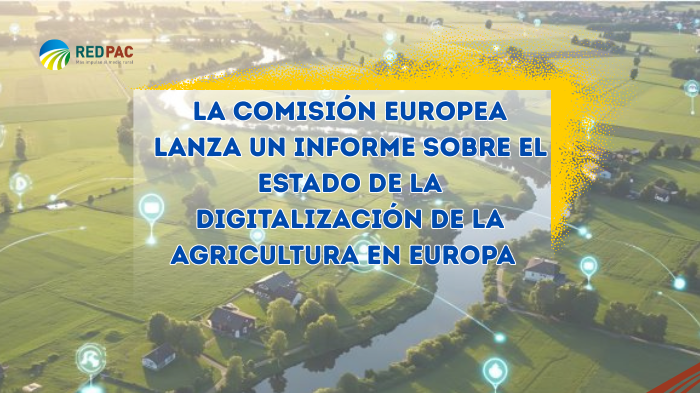
06 de November de 2025
Cambio climático y gestión de recursos naturales
Calidad y cadena alimentaria
Resiliencia y competitividad
The study by the European Commission's Joint Research Centre offers a detailed overview of the use of technology in the European countryside.
- The study by the European Commission's Joint Research Centre offers a detailed overview of the use of technology in the European countryside.
- 93% of farms use digital tools, but the adoption of advanced technologies remains limited
The Joint Research Centre (JRC) of the European Commission (EC) has published the report “The state of digitalization in European agriculture – Agricultural survey perspectives” which analyzes the degree of digitalization of European agriculture based on surveys carried out on 1,444 farms in 9 Member States.
The study confirms that digitalization is already part of the agricultural reality, with widespread use of software and applications specifically designed for the field, although there is an underlying lag in the integration of specific technologies into farming and livestock activities. The document also points to the need to improve data interoperability and strengthen farmer training.
Main results
The research shows a high level of use of basic digital tools :
Information technologies: 93% of farms use at least one application or software, and two-thirds use three or more.
Agriculture: 79% have adopted some digital technology for agricultural management, although only 23% use four or more.
Livestock farming: 83% use at least one specific tool, but only 17% use more than three.
The report reveals an uneven pace; while the adoption of simple solutions such as mobile applications or digital records is high, the use of drones, automatic milking systems, or agricultural robotics remains marginal.
Regarding the perception within the agricultural sector , most see digitalization as an opportunity:
76% expect these tools to bring economic benefits.
72% are confident that environmental improvements will occur.
67% anticipate positive social impacts.
Challenges identified
The report highlights that the following relevant barriers to the digital transformation of the sector persist:
High costs of advanced technologies, especially in livestock farming.
Training gap: 63% of those surveyed have not received training in agricultural digitization in the last five years.
Unequal connectivity: although 85% of farms have internet access, 15% still face problems with reliable access.
The study also warns that the installation of new technologies has lost momentum since 2020, probably due to economic uncertainty, so the intentions to incorporate new technologies in the next five years are more modest.
Data and trust
Another key aspect is data management and sharing . Most professionals in the agricultural sector collect information about their farms, although largely manually or with basic tools such as spreadsheets.
Data sharing with external actors is limited due to concerns about privacy, security, and control. The sector tends to share only with advisory staff or trusted cooperatives, while being much more reluctant to share with public institutions or technology companies.
Implications for European policy
The JRC highlights that digitalization is a pillar of both the European Union's (EU) Digital Agenda and the Common Agricultural Policy (CAP) 2023-2027 . However, uneven adoption requires more specific strategies adapted to the diversity of European agriculture.
The report asserts that strengthening digital training, improving rural connectivity, and offering incentives for advanced technologies can accelerate the transformation . Furthermore, it highlights the importance of establishing clear interoperability and transparency standards for data use to reduce the administrative burden and build trust within the agricultural sector.









